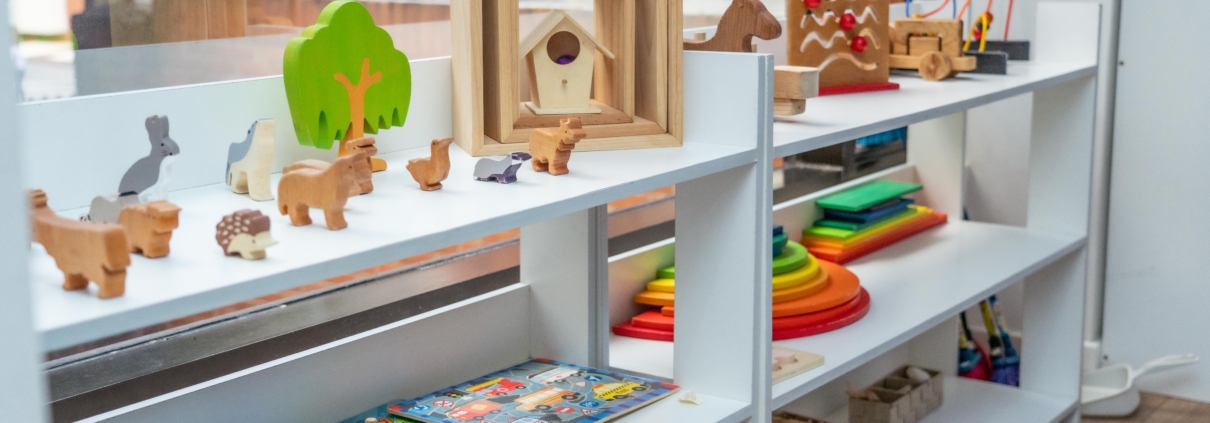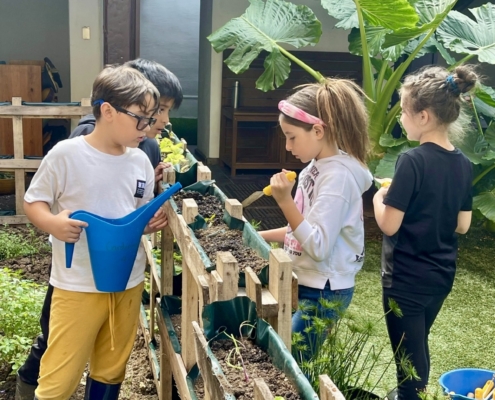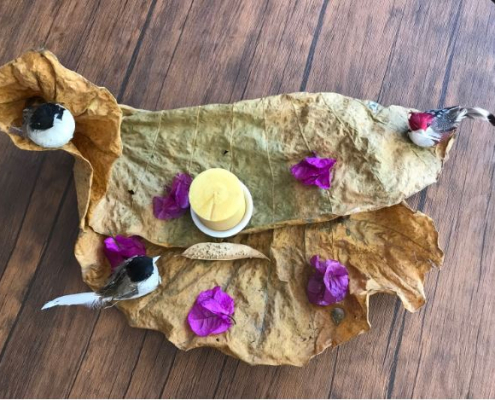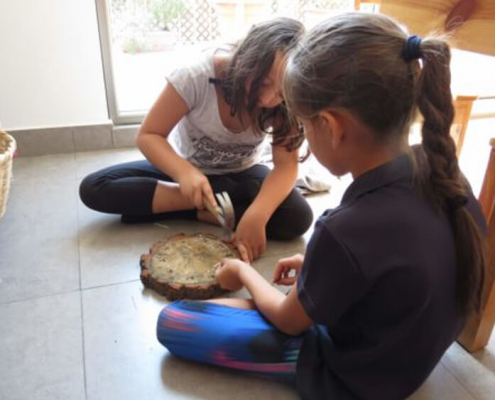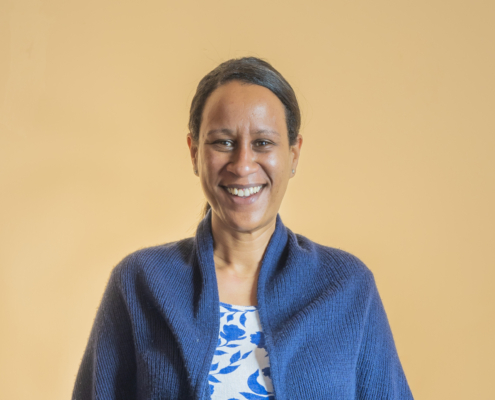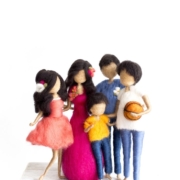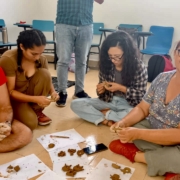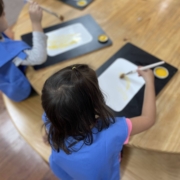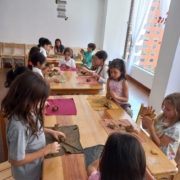Creating Waldorf Spaces at Home
Written by Tahnee Moore
Trinus’ Early Childhood rooms are spaces we immediately connect with and feel we would like our children to be in. What is it that we are instantly resonating with? Here I am going to share the pedagogical intention and reasoning behind them so you too can bring Waldorf into your home.
A small child is a total sense organ who absorbs the space deeply and unconsciously and then is shaped by it. It is for this reason that Trinus’ spaces are designed to support the child’s development and nourish their senses.
The lower senses (movement, balance, touch, life/wellbeing) are particularly important for children under 7 years old because this is how they experience the world and develop their brain, physical body and organs.
Rudolph Steiner, the founder of Waldorf pedagogy, spoke about experiences essential for healthy early childhood education:
- Love and warmth
- Care for the environment
- Creative artistic experience
- Meaningful adult activity as an example for the child’s imitation
- Free imaginative play
- Gratitude, reverence and wonder
- Joy humour and happiness
- And that the adult caregiver is on a path of inner development
Love and Warmth
If we take the experience of love and warmth we can easily see how this lives in an Early Childhood classroom. The furniture is made of wood rather than metal or plastic. Wood holds warmth. The corners are softened and love and care has gone into their construction. Everything is made just the right height so the child feels that they “are just for him or her.”
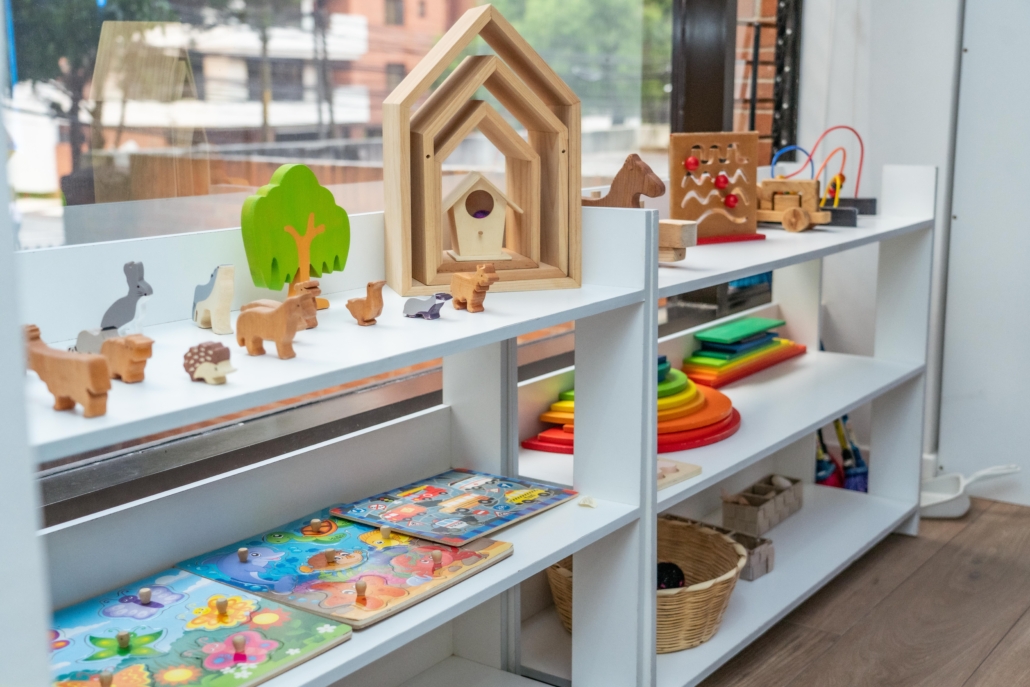
Then the room is made to feel soft, with gentle silk cloths across the windows or to cover a harsh brick wall. The room may smell of lavender or an essential oil and has a feeling of homeliness. When children arrive their teacher greets them with a warm welcome from her rocking chair. There is always a carpet on the floor and a soft corner to cuddle up in.
Care for the environment
There is always an element of life in a Waldorf classroom, a plant, a fish tank, fresh flowers, etc. The nature table that changes with the seasons. The songs and stories shared may also reflect this. Outside in the playground, the children are shown to care for the plants, to observe the ants, to be excited if a dragonfly is discovered. Our connection and custodianship of the Earth is intrinsic to Waldorf Education.
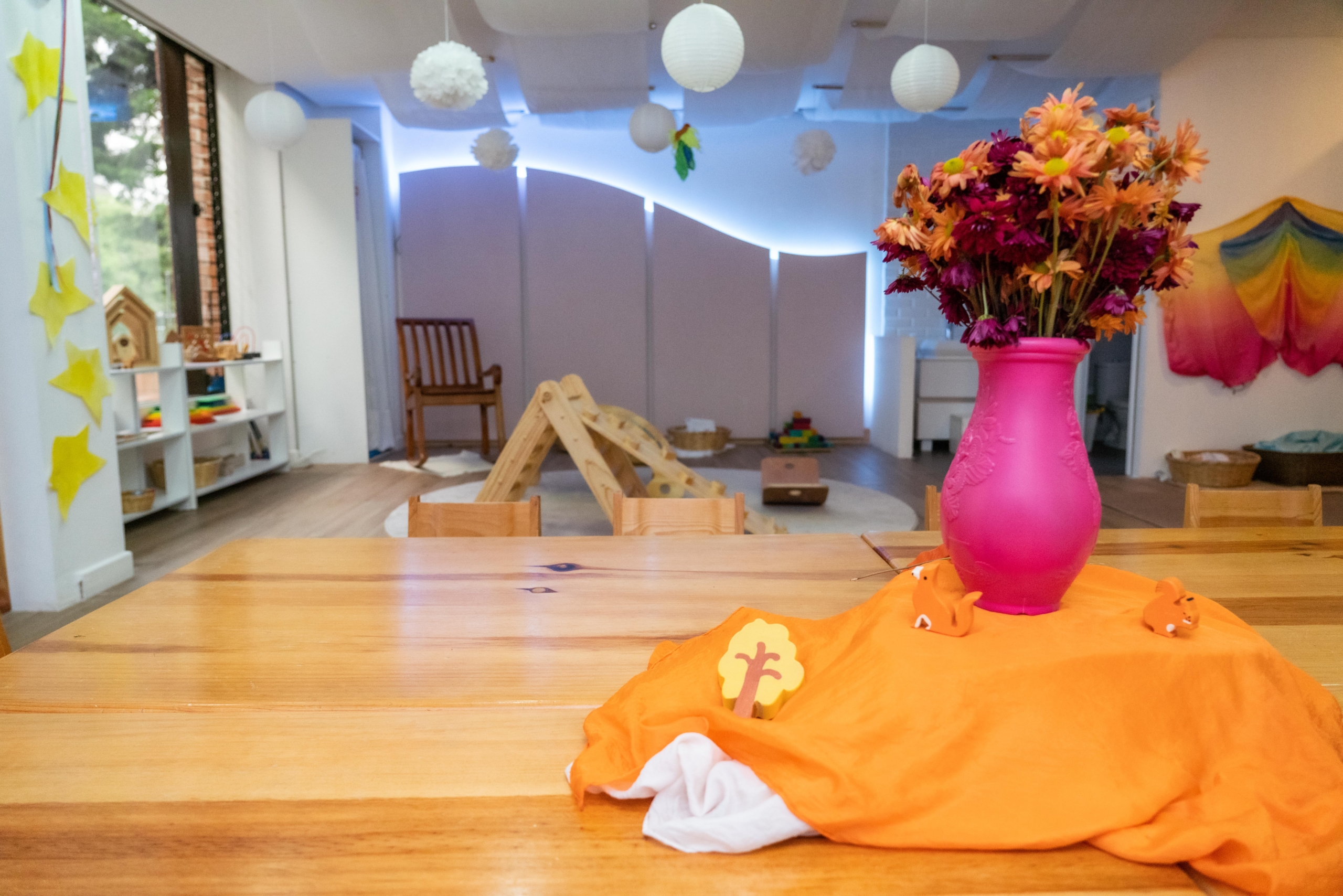
Gratitude, Reverence and Wonder
Again the nature table is an essential part of an Early Childhood space. It is specially designated table that allows us to admire the beauty, perfection and wonder of creation. When we dedicate a place to put nature’s treasures the children are invited to subconsciously appreciate and marvel at nature’s gifts. How the leaf pattern is formed, the geometrics of a pinecone, the delicate nature of a butterfly wing…
Reverence is also practiced in how we care for our toys, how everything in the classroom has a place, how we set the table, and of course in our interactions with our teachers and classmates.
Each meal we share is started with a reverent pause and a song of gratitude. Of course, the children themselves being in the space of reverence grow up to be reverent.
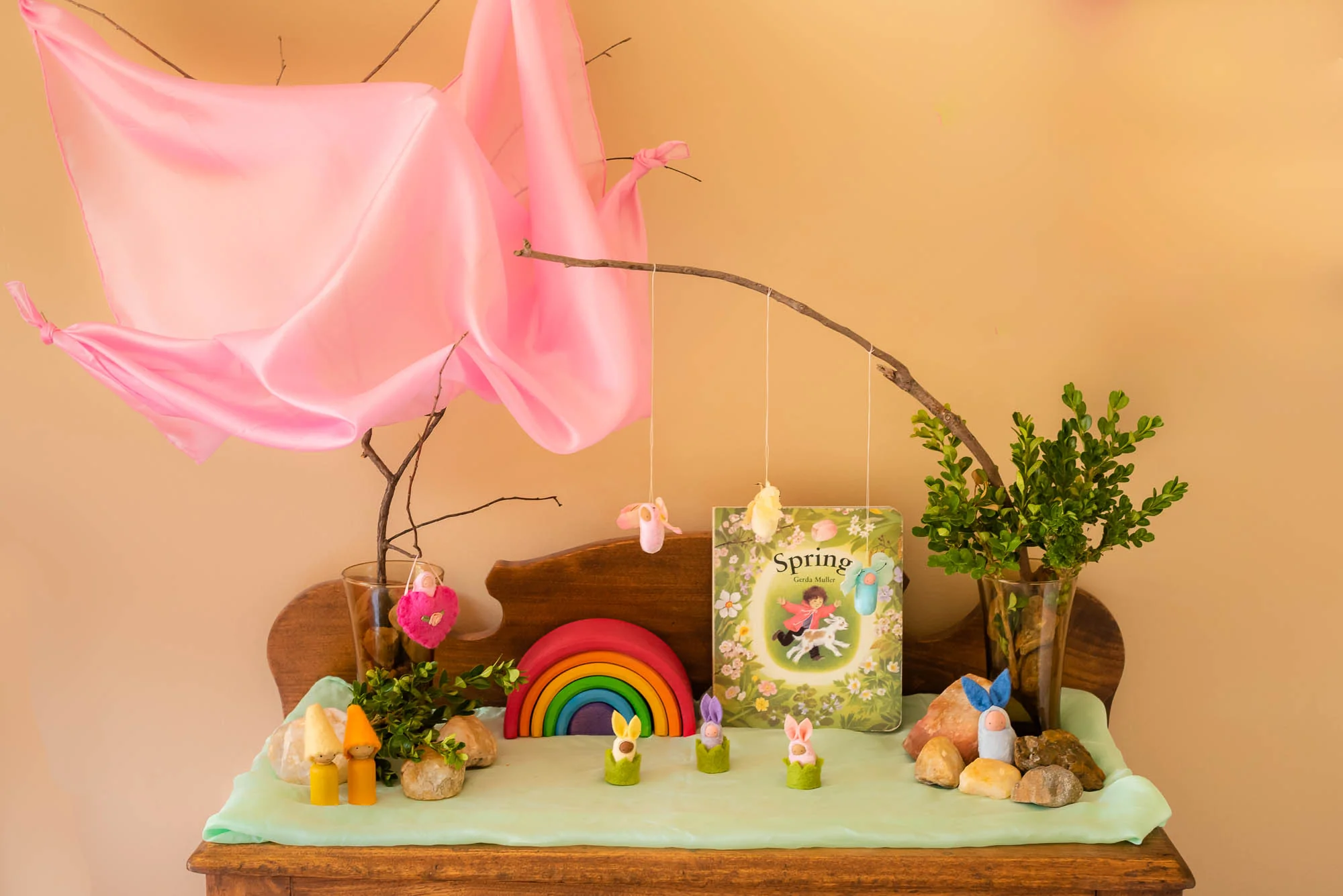
Free Imaginative Play
The space allows the children to immerse themselves into free individual play. Near the shelves is a big cleared rug, ready to be played upon. Have available for your children toys that support their development. For example, open-ended wooden blocks, dolls with minimal detail, etc. Toys that do not dictate the game to be played allowing the children’s imagination to work.
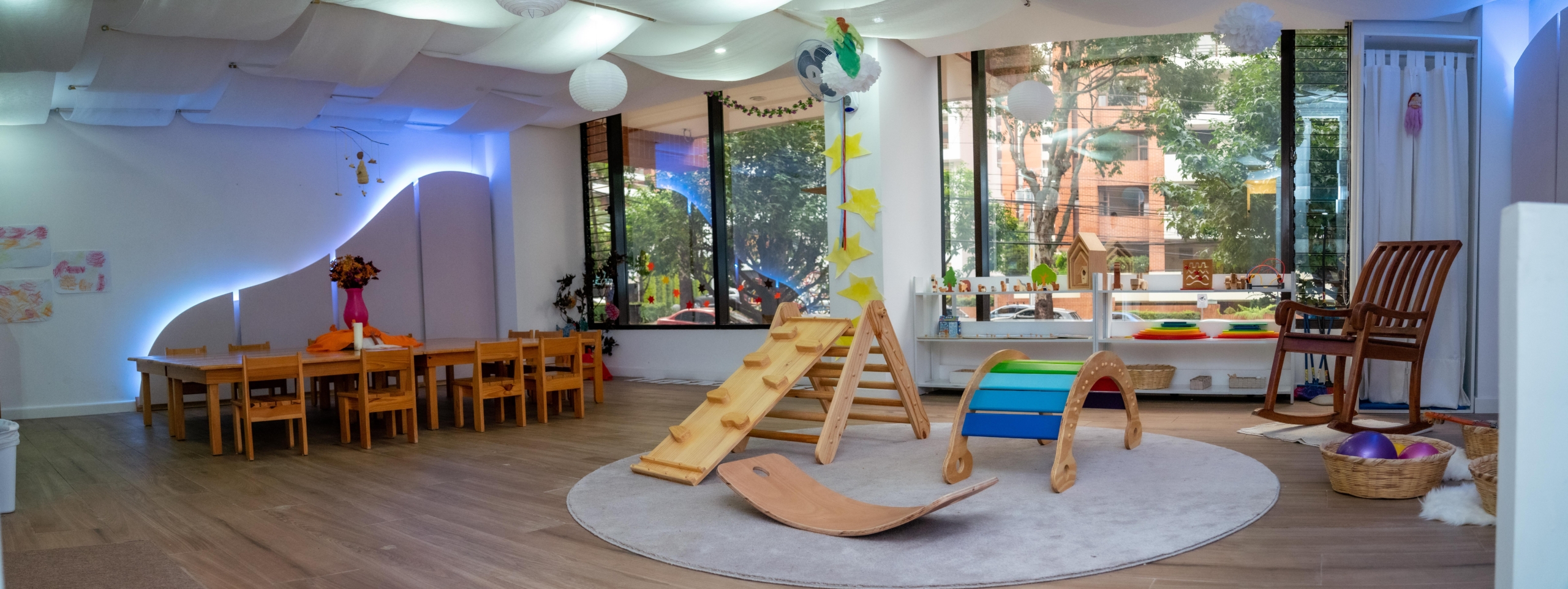
Having reverence for each child’s individuality and nurturing the expression of that individuality is an essential part of Rudolph Steiner’s work. This is expressed within the classroom space where there are several little spaces: a treehouse, a kitchen, a cozy nook, a doll’s corner… There is always a wooden play stand that can make a new space and be moved around easily by the teacher. The teacher will always be quietly observing the children and create the physical space needed. Her role is to support whatever is living in the expansive, wonderful imaginations to be played out freely.
Meaningful adult activity as an example of child activity
“Children [under 7 years old] do not learn through instruction or admonition, but through imitation. Good sight will develop if the environment has the proper conditions of light and color, while in the brain and blood circulation, the physical foundations will be laid for a healthy sense of morality if children witness moral”. – Rudolph Steiner.
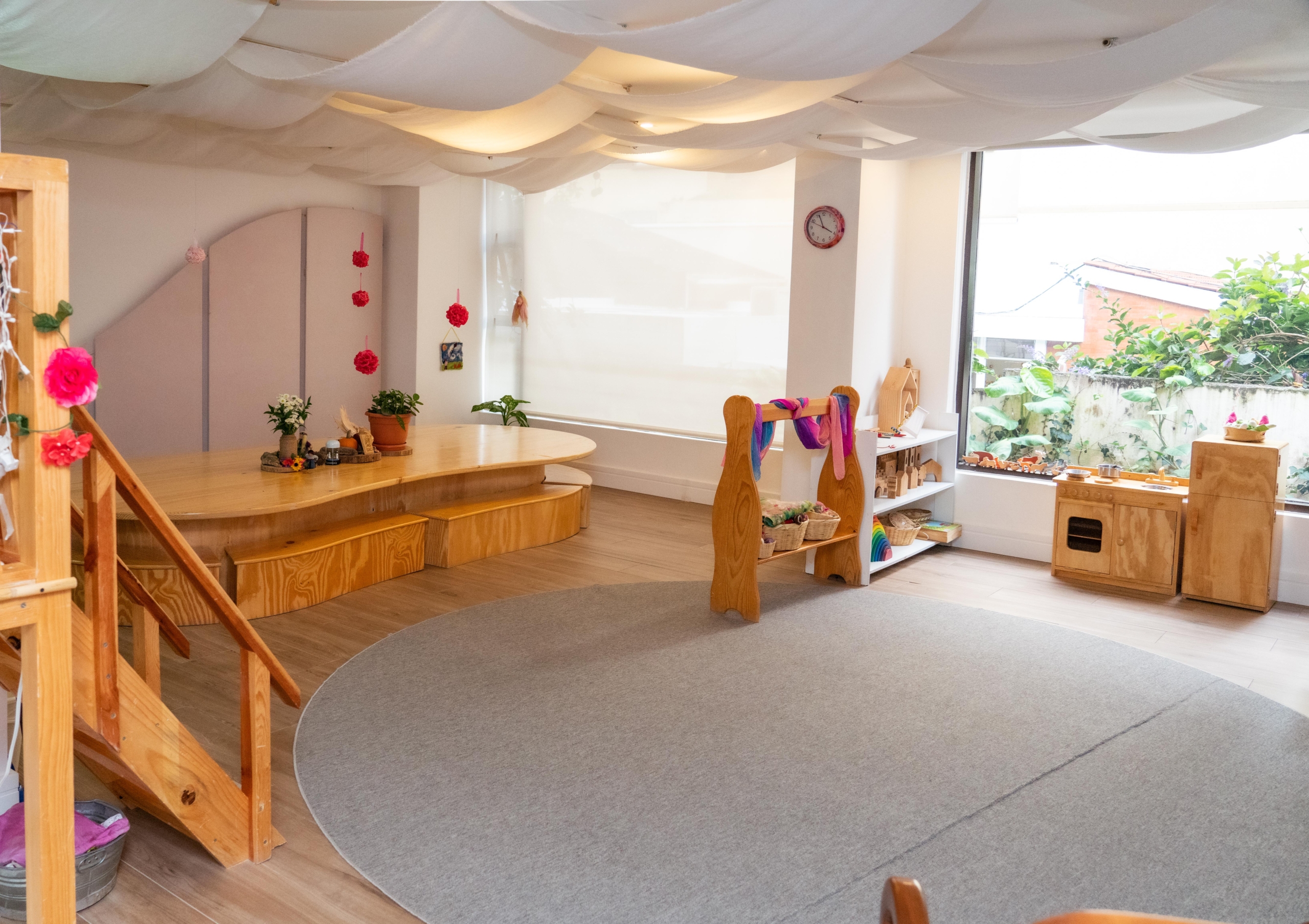
Because children imitate adults at home it’s important to make mini me spaces. Eg if you are an artist you would make a little artists desk, if you are a business person you would have a pretend office. I wanted to gift some practical advice if you did want to bring Waldorf into your child’s play space. Less is more and you don’t need to cover them in countless toys. The more use one toy has, the better. So I suggest the following:
- Have a decent amount of Wooden blocks so that the child can construct anything they dream of.
- A basket of Silks fabric might be a gift that will stand the test of time. We buy ours from Mercurius.
- A good doll is also an investment.
- Old clothing for dress-ups
- Nature treasures brought back from a walk nourish the child so more than any predetermined plastic figuring.
And the best play is unguided play in nature.
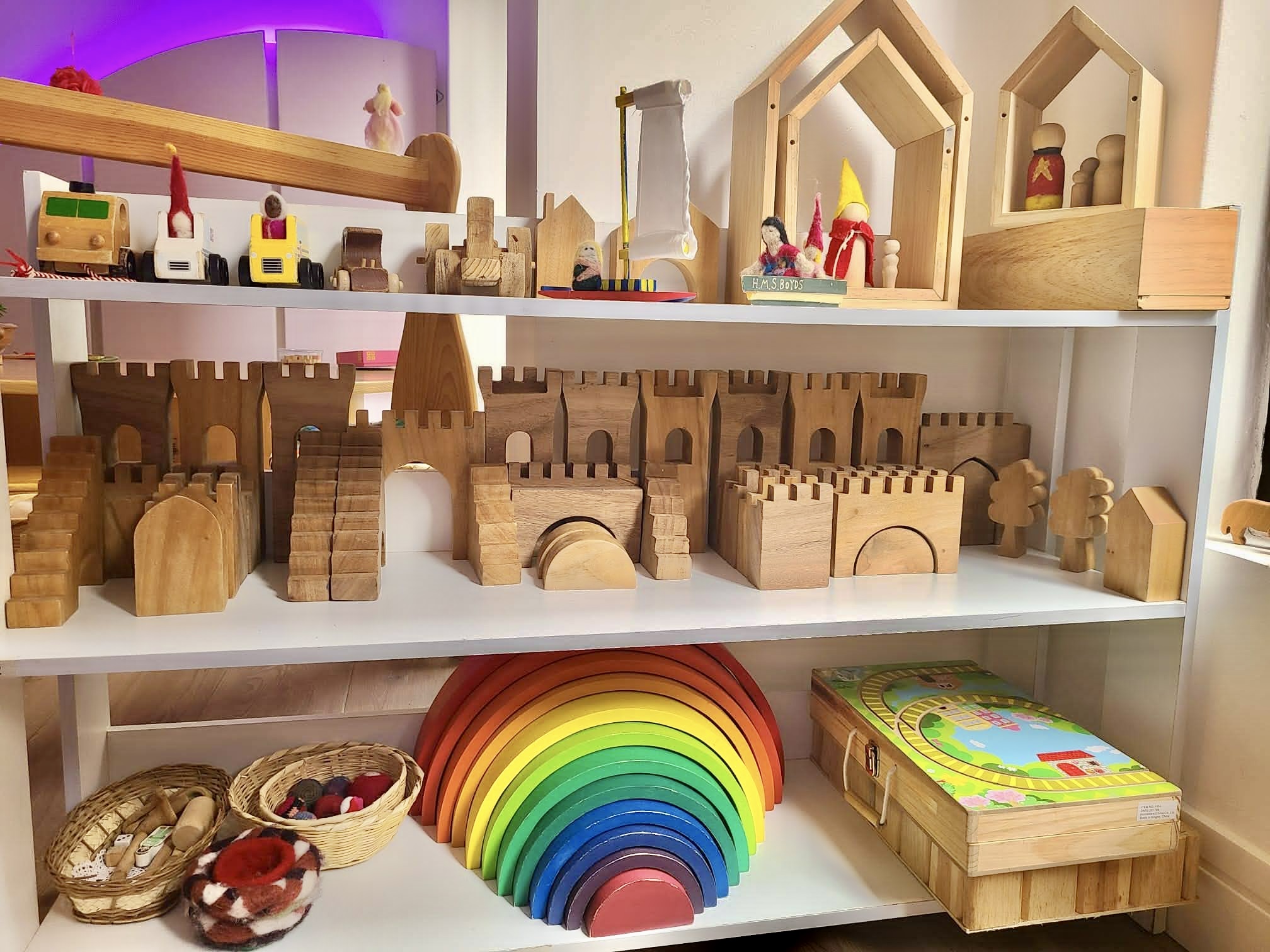
Wooden blocks often become mobile phones and chairs are rearranged to become a car or a bus. Birthday parties are thrown and cakes are made from various toys, the silks can become any costume or prop…
In Trinus the teacher will also be aware that the children are deeply absorbing her activity and role models handwork or other purposeful activity worthy of imitation. Baking, cleaning, mending as activities but also the attitude of the teacher is being imitated. The teacher’s work must be carried out with a joyful song, and a reverent mood.
Within this proper physical environment, the child receives so much through their senses and their inner qualities are nurtured. They themselves are received with reverence, warmth and love and from this space their individuality is nurtured into being.

